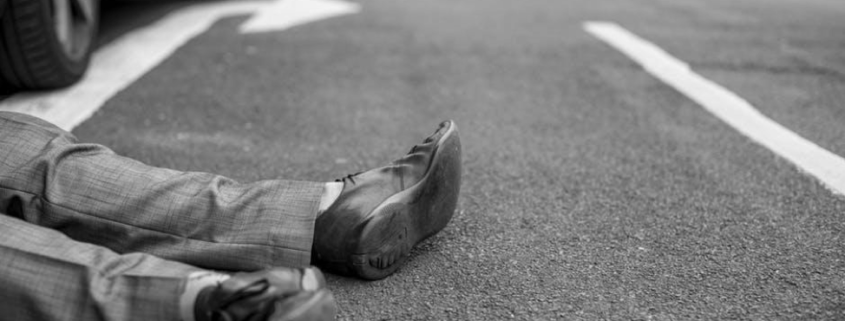Pedestrian Blame: Are Drivers Always Responsible in Pedestrian Accidents?
In 2016 in the U.S., nearly 6,000 pedestrians lost their lives by being struck by a car. On top of that, close to 129,000 pedestrians suffered injuries.
In many pedestrian accidents, the pedestrian has the right to claim compensation from the driver or their insurance company to pay for medical bills, lost wages, etc. That seems fair since the driver caused the pedestrian potentially life-changing damage.
But is it always the driver’s fault? What about when a driver is driving safely and defensively, and someone jumps out in front of their car? They can’t stop their car on a dime.
Let’s look at how the law in Arvada and Westminster, Colorado treats pedestrian accidents.
Are Drivers Always at Fault for Pedestrian Accidents?
No. Many people mistakenly believe that drivers are always at fault in pedestrian accidents. The law recognizes, however, that pedestrians can do something that makes it impossible for the driver to avoid hitting them. For example, stepping out from between parked cars only a couple feet in front of a moving vehicle.
In some cases, pedestrians can even be held responsible for damages to the driver’s car. If the driver struck another vehicle or damaged property trying to avoid the pedestrian, the pedestrian can be responsible for those damages as well.
Driver’s Duty of Care
Drivers do have a responsibility called the duty of reasonable care. Operating a vehicle is not without risks and drivers are responsible for reducing that risk as much as possible.
Not all circumstances are the same while driving. The duty of care refers to what a reasonable, prudent person would do given the specific circumstances.
For example, a driver going 30-mph in a 30-mph zone is not breaking the law. However, if the driver spots a person walking erratically near the edge of the road, a prudent person would slow down. If they fail to do so, they could be held liable for a resulting pedestrian accident.
How Does the Law Assign Blame?
During a lawsuit for a pedestrian accident, the court and jury will examine the evidence to determine fault. This includes the testimony of the pedestrian, driver, eyewitnesses, expert witnesses, the police report, and more.
Drivers can be held liable for reckless driving, texting and driving or engaging in other types of distracted driving. Pedestrians can be held liable for distractions like talking on their phone or for crossing the street where there is no crosswalk.
Nearly half of fatal pedestrian accidents involve alcohol for either party. About a third of pedestrians killed are legally drunk.
Contributory Negligence
The old way of assigning blame was rather harsh. If an injured party was found to share even a tiny bit of fault for the accident, they could not claim compensation.
There are only five states that still follow this rule. Thankfully, Colorado is not one of them.
Comparative Negligence
The rest of the states use the comparative negligence rule. There are two types of comparative negligence.
The first, used by 13 states, is pure. Each party is assigned a percentage of the blame. Any damages awarded are reduced by the injured party’s share of the blame.
For example, let’s say the court finds that the driver is 60% at fault and the pedestrian shares 40% of the blame. They can claim compensation, but the amount awarded will be reduced by 40% — their share of the blame.
The 33 remaining states (including Colorado) use a modified version of comparative negligence. If the injured party is 50% or more at fault for the accident, they are barred from recovery. If the injured party is less than 50% at fault, then any award is reduced by their percentage of responsibility.
Proper Representation in Arvada and Westminster
Don’t handle a pedestrian accident case alone. From dealing with insurance companies to filing a lawsuit in court, an experieced attorney can make all the difference in your case and the amount of compensation you recover.
For this reason, you need proper representation. A solid attorney knows how to present the case in the best light, so the insurance company or jury assigns you as little blame as possible.
Contact us here at Alhasoon, Glidden & Glidden Law Firm by calling (720) 487-1050 for a free consultation today!



